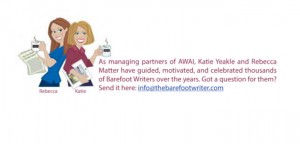When I started my career in publishing almost 20 years ago, I thought the only way to make a living as a writer was to find a publisher, and write a best-selling book.
As a young marketer I was taught to fear the “digital age” of online publishing that was threatening our world. And to look down on self-published materials… how could anyone possibly do what we do on their own?
Fast forward to today…
I now know for a fact that traditional book publishing represents a teeny tiny part of the opportunity for writers.
And a study by Author Earnings report revealed the traditional publishers now only account for about 16% of books sold through Amazon. Talk about a big change!
What’s more, the report also showed that self-published books NOW represent about 31% of books sold online. Through all channels!
But here’s the thing…
Books still only scratch the surface of what is now called the Information Publishing industry.
That’s why today I’m going to share how it’s possible for you to carve out your ideal writer’s life in one of the fastest growing niches for writers…
The Lucrative World of Information Publishing
It’s important to know that information publishing opportunities reach far beyond just writing fiction and non-fiction books. If you can dream up some kind of information-based product and pinpoint an audience that would be interested in it, you can become an information publisher.
For example, you could write and publish any of the following:
- How-to guides
- Special reports
- Pamphlets
- E-books
- Newsletters
- Training programs
- Cookbooks
- Comic books
- DVDs
- Audio lectures
And the list goes on…
Basically, if you can think of a way to share information, you can deliver self-published content in any format you prefer, and on just about any topic.
4 Big Reasons Information Publishing is a Dream Career
Probably the number one benefit of information publishing is that you get to be entirely in charge. Meaning you call all the shots. You can author the things you sell, or you can hire other writers to write them for you. You can position yourself as an expert on a topic, or you can interview experts. You decide.
Similarly, information publishing allows you to develop a passive income stream. Thanks to life in the digital age, you don’t have to deal with overhead or a sales staff. And thanks to automated selling systems and platforms that make it easy to get started (like Amazon or Smashwords), you simply have to create and promote the content. Sales can come in whether you’re writing or lying on a beach somewhere.
Information publishing can also elevate your expert status in your field and strengthen your credibility. Simply publish a book that demonstrates your knowledge and background. Depending on your long-term career goals, this approach could position you well as a service-provider, expert, or speaker in a particular field.
Finally, information publishing offers multiple ways to branch out in different directions, meaning you don’t have to stop at publishing your own products. You can expand as little or as much as you want, to include potentially publishing books, lists, and various projects in different formats that are penned by other writers.
But remember, even though you may be working with others, you’ll still be working entirely for yourself. YOU are the publisher.
7 Steps to Getting Started in the World of Information Publishing
Once you decide you’re ready to launch a career in information publishing, you’ll want to follow these seven steps to get started…
1. Pair your topic with your goals.
Why are you getting into information publishing? To write about things you’re passionate about? To increase your credibility in a niche for your copywriting business? To turn your experiences into a passive revenue stream? Whatever the goal, make sure what you choose to write about leads you to your goal. In other words, don’t choose martial arts as your topic, if your goal is to become a financial copywriter.
2. Ensure you choose a niche with profit-potential.
Once you know what you want to write about, research websites, publications, and groups focused on the same topic. If you can find a good number of businesses targeting your same audience, it means there’s an audience looking for more content on that topic. This is also a way to figure out just how much competition you may be facing. (A little competition is a great thing!)
3. Do your keyword research.
I recommend tapping Google’s free Keyword Tool to find out what topics and phrases your audience may be searching for. If you take even a little time to research the topics that you’re considering, you could easily come across more specific elements of those topics that hold clear interest for your particular audience. Your goal is to find a topic that gets at least several thousand search “hits” each month, but where advertising competition isn’t over the top (Google’s Tool can give you all that).
4. Don’t skimp on the visuals.
Cover art may not seem important at first glance, but a good cover can make a self-published book much more appealing to a buyer. Thanks to the online network of freelance designers, you can typically get a great cover for anywhere from $50 to $100. Consider that a worthy investment in your information publishing career.
5. Pay attention to formatting.
If you want to be taken seriously as a self-publisher, you need to make sure your book looks like a serious book. That means including the basic elements such as a title page, publishing information, an ISBN number, rights information, copyright dates, a table of contents, and an acknowledgement page. Make sure your book looks as professional as possible.
6. Length is less important than substance.
One of the reasons many writers get daunted when it comes to writing a book is the idea that books need to be long. Yet, that’s not true at all — quality always outplays quantity. I’ve bought and read quality ebooks that are as short as 20 pages, and when the content is good, it’s well-worth the investment.
7. Look for holes in the market.
Any time you settle on a market or a niche, it’s a good idea to look for where relevant information is lacking. For example, when it comes to parenting topics, there are loads of books for sale that offer advice on parenting babies and toddlers, and perhaps just as many on parenting teens. But what about for that five- to 12-year-old age group? There could be a market at that in-between point… and that may be the case for loads of other topics. Do your research and you may find a “hole” that leads to blockbuster sales.
Investments Needed to Launch Your Information Publishing Business
Assuming you will be doing the writing to start (and not hiring freelancer writers), it doesn’t take a lot of money to launch an information publishing business. Upfront costs typically include putting up a website, and then driving traffic to that site — either by paying for it, or working to establish relationships with other sites willing to link to your site. Many marketing techniques — like building groups on social media — require very little monetary investment. It’s mainly your time.
The only other expenses would be if you decide to publish printed materials. You’ll then have expenses to cover there. But given the speed, ease, and low-cost of publishing digitally, you might be better off waiting to do any print projects until you’re well-established as an information publisher.
And depending on how fast your get up and running, the return on your investment can come quickly…
Self-publisher Gary Scott got his business up and running in just a month — and by the end of that month was getting a 380% return on the initial fees he’d invested.
Ready to Go For It?
Plenty of writers get excited about the opportunity to publish their own content, but stop short when they think about the entrepreneurial factor…
Remember, you get to be completely in charge. But that means you’re the one calling the shots, footing the investments, and making the daily decisions. You’re now the boss!
Granted, you won’t have to do it entirely on your own. After all, one of the perks to being part of the Barefoot Writing Community is the ability to reach out to writers at all levels who can give you advice on various aspects of writing and publishing.
So, if having complete artistic freedom and decision-making authority sounds good to you, this is a writing opportunity you’ll want to look into.
To get started, I recommend simply writing. Write every day. Write in a journal. Write things out by hand. Work to improve the clarity and speed of your writing, and you’ll boost your chances of success a hundred-fold.
When you go to check out topics and niches, remember to focus on things you love or that you’re at least interested in. It’s ideal to find something so captivating that you can write about it easily. You don’t want to stick yourself with a topic that bores you… the writing in that case will come slowly and painfully.
And if you’re wondering whether there’s already too much written on any given topic, given the fact that we live in a very information-driven age, remember this: Information is — and will continue to be — a rapidly growing industry worldwide. People are hungry for a fresh spin on things, for a new take. That means there’s a constant need to take existing information and rephrase, re-capture, or reposition it in a way only you can do.
Do this, and you’ll find yourself launching a successful information publishing business in no time!
Editor’s Note: If you’d like to learn more about self-publishing as a pathway to financial freedom and the writer’s life, take a look at Self-Fulfilled: How to be a Writer and Publisher by Gary A. Scott.






